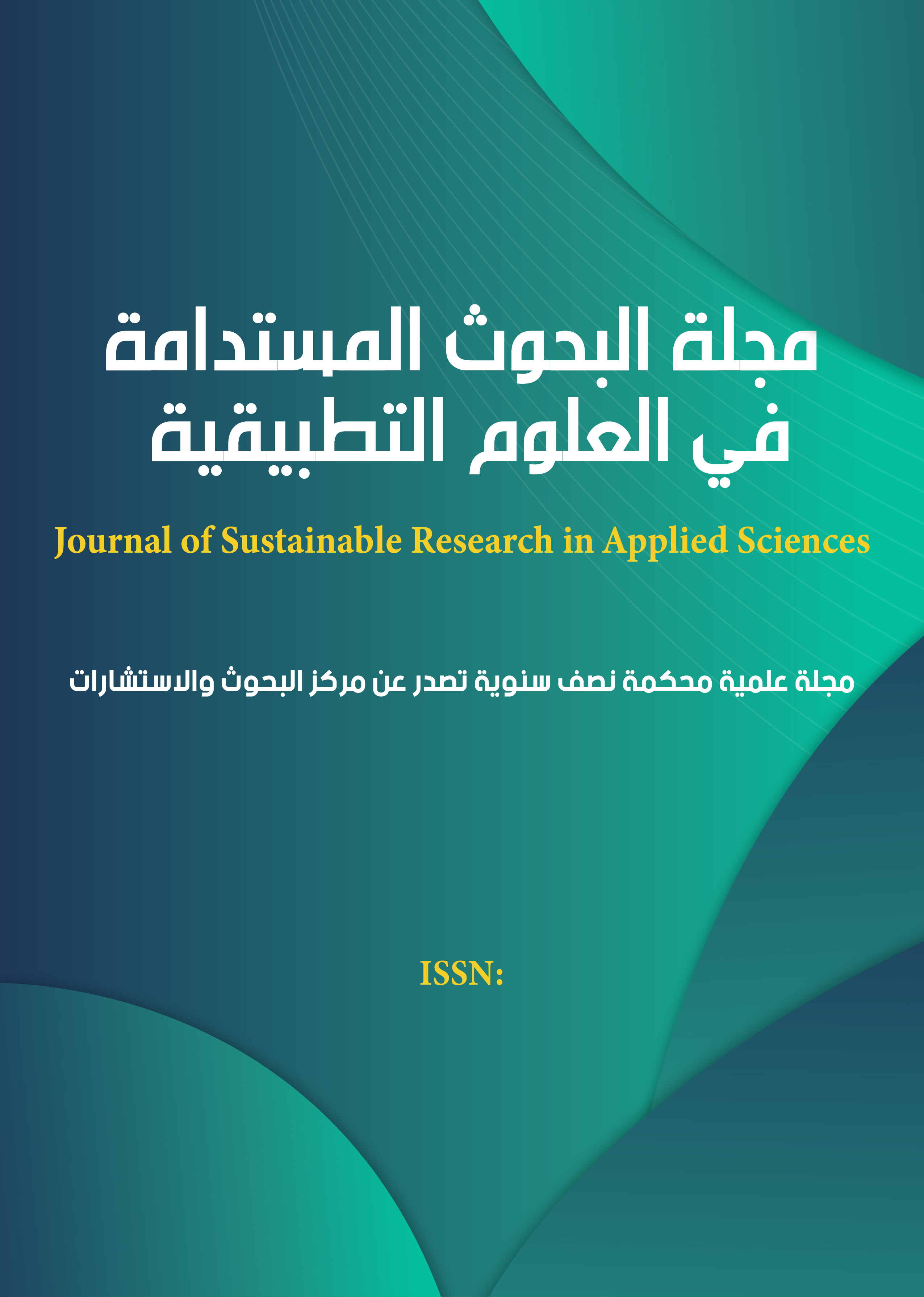Food insecurity among students in University of Benghazi
Keywords:
food insecurity, food security, university, studentAbstract
Background: Because of their restricted financial resources, diminished purchasing power, and rising
housing and food expenses, university students may be more susceptible to food insecurity [FI]. The
purpose of this study was to evaluate university students' prevalence and severity of food insecurity.
Methods: A cross-sectional survey was designed, and data were collected using questionnaire and
interview with the university students. Students from various academic levels made up the study
population, and evaluations were conducted during the winter semester between January and February
2024. To establish the relationships between FI and sociodemographic factors, chi-square tests were
employed. Additionally, bivariate logistic regression was employed to evaluate variables linked to FI.
Results: From the 300 participants, 52% of students were classified as food insecure, consisting of 32%
with mild FI, 17.7% with moderate FI, and 8% with severe FI. FI was significantly associated with
presence of household members that smoke every day [p = 0. 0.029, p=0.049, p=0.008], We used the
Logistic Regression method to predict the regression which interpret that, the reduction of smokers by
84% will significantly contribute to achieving greater food security.
Conclusions: An understanding of the FI levels of university students at Benghazi university is given by
this study Is found More than half of the students studied at the University of Benghazi were affected by
food insecurity, with emphasis being given that the rate of cigarette consumption was more influential
than other factors Future research is required to investigate solutions addressing food insecurity in this
group and to employ objective indicators of food insecurity [food availability, access, and utilization]



